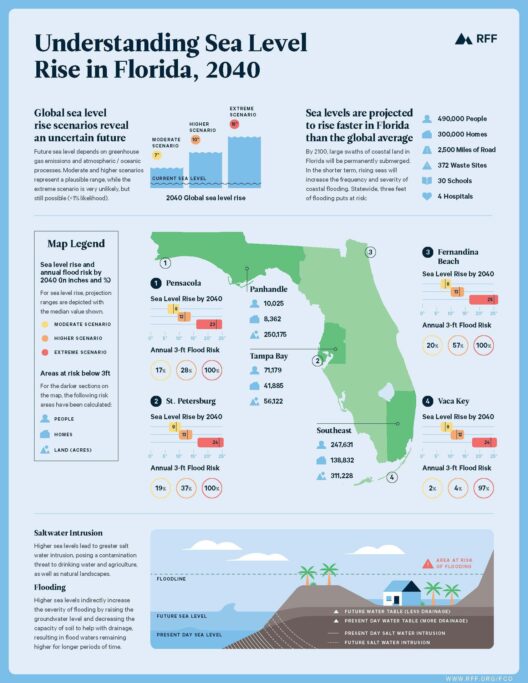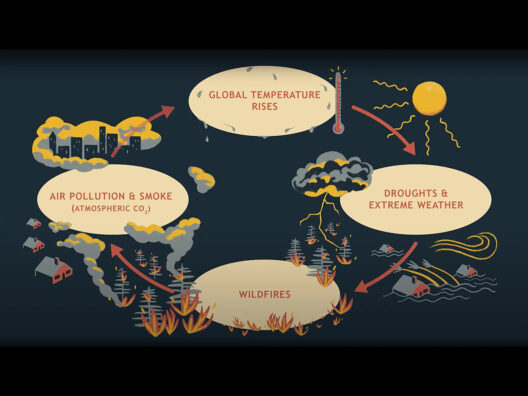Forests encompass a crucial sphere of ecological interaction, serving as a cornerstone for biodiversity and the health of our planet. The encroachment of industrial activity, urbanization, and agriculture continues to threaten these ecosystems, yet their preservation is integral to combating climate change. Understanding the myriad reasons for protecting forests transcends mere advocacy; it unravels a complex tapestry of ecological, social, and economic arguments that highlight why forests are imperative for a cooler planet.
Firstly, forests act as vital carbon sinks. Through the process of photosynthesis, trees absorb carbon dioxide, a principal greenhouse gas, and sequester carbon in their biomass and surrounding soil. It is estimated that forests store approximately 283 gigatonnes of carbon globally, significantly mitigating the effects of climate change. This ability to capture and hold carbon underlines the necessity of preserving existing forest cover. Deforestation, conversely, releases stored carbon into the atmosphere, exacerbating the greenhouse effect and leading to increased global warming.
Moreover, forests play a critical role in regulating the Earth’s climate and weather patterns. Forested areas contribute to the hydrological cycle, ensuring adequate rainfall distribution through transpiration—the process whereby water is released from trees into the atmosphere. This not only affects local climates but also contributes to global weather stability. Forest loss can lead to altered precipitation patterns, resulting in drought in some areas and flooding in others. As climate change continues to disrupt weather systems, maintaining forest integrity is essential for climatic resilience.
A deeper examination reveals the intricate interplay between forests and biodiversity. Forests are home to over 80% of the terrestrial species of animals, plants, and fungi. This richness in biodiversity provides numerous ecosystem services, from pollination of crops to natural pest control, which are essential to food security. Furthermore, the genetic diversity found in forests is a reservoir for future medicinal discoveries—many pharmaceutical compounds are derived from forest flora. The extinction of species and degradation of habitats due to deforestation jeopardize not only ecological balance but also humanity’s potential for scientific advancement.
In addition to ecological contributions, forests provide socio-economic benefits that directly impact human livelihoods. Indigenous communities and rural populations often depend on forests for their subsistence, using them for food, shelter, and cultural practices. The degradation of these resources can lead to social destabilization and economic disparity. Sustainable forest management provides opportunities for economic development while safeguarding against deforestation. By engaging in practices like agroforestry and ecotourism, communities can thrive while preserving their environmental heritage.
Furthermore, the preservation of forests contributes positively to public health. Green spaces are known to improve air quality by filtering pollutants and trapping dust, thereby reducing respiratory ailments among populations. The psychological benefits of being in forested areas—including stress reduction and improved mental health—are well documented. Urban forestry initiatives can harness these benefits, bringing the serenity of nature into densely populated areas. Protecting forests, therefore, has multifaceted implications for societal well-being.
Despite the overwhelming evidence supporting forest conservation, deforestation continues to surge. The acceleration of logging, agricultural expansion, and infrastructure development has led to alarming deforestation rates. Addressing these challenges necessitates a concerted effort at local, national, and global levels. Policy initiatives must align with restorative practices, ensuring that deforestation is not an accepted norm but an exception. Effective governance, coupled with community engagement, is fundamental for implementing conservation strategies that are both ecologically sound and economically viable.
Another crucial aspect is the role of global cooperation in forest conservation. The interconnectedness of environmental issues transcends borders. International agreements, such as the Paris Agreement, emphasize collective responsibility in combating climate change. Nations must foster collaborative frameworks to protect forests, share resources, and transfer knowledge. Initiatives such as REDD+ (Reducing Emissions from Deforestation and Forest Degradation) aim to incentivize forest conservation while fostering sustainable development trajectories globally. Such collaborative frameworks create an avenue for shared objectives that focus on the long-term sustainability of forests.
Technological advancements also present innovative solutions for forest conservation. Remote sensing, geographical information systems (GIS), and drones offer unprecedented opportunities for monitoring forest health, conducting research, and managing natural resources. Digital technologies can facilitate greater transparency and accountability in forest governance, ensuring that conservation efforts are effective and equitable. By harnessing technology, stakeholders can implement strategies that enhance forest resilience and adaptability in a changing climate.
In conclusion, protecting forests transcends a simple preservationist ethos; it embodies a multifarious strategy essential for global climate stability, biodiversity richness, socio-economic welfare, and public health. The urgency of our climate crisis necessitates immediate action to halt deforestation and safeguard our forests. By recognizing their intrinsic value and adopting sustainable management practices, we can pave the way for a cooler planet. Forests are not merely a resource; they are a vital part of our planet’s heritage and the foundation for future generations. It is critical that we go beyond the chainsaw and prioritize the conservation of these invaluable ecosystems for the health of our Earth and its inhabitants.







